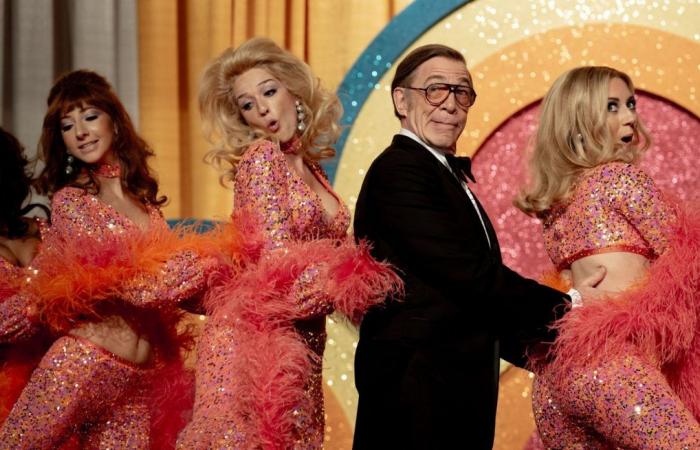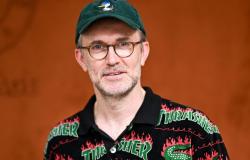After almost 50 years of existence, the satirical show Saturday Night Live without presentations. It’s the kind of institution that just about everyone knows, even if only by name. We may have forgotten it, or we may be too young to know it, but SNL revolutionized humor on television. On October 11, 1975, the historic premiere caused a sociocultural shock wave of a magnitude that only one person had anticipated, or finally hoped for: Lorne Michaels, creator and producer of SNL. In Saturday Night (Saturday evening), Jason Reitman recreates the incredible evening that preceded this birth.
Incredible, because we do not suspect the quantity of pitfalls that Lorne Michaels (formidable Gabriel LaBelle, the revelation of The Fabelmans/The Fabelmans) had to overcome that evening. At one point, John Belushi, who still hadn’t signed his contract and was completely high on coke, vanished, to give just one example. Certainly, the plot compresses certain events for dramatic purposes, but the scenario is hyper-documented, as confirmed in an interview with Duty Jason Reitman, who signs his best film since the black comedy Young Adult (Young adult).
Basically, and we can see Lorne Michaels explaining it to NBC network executives, SNL was intended to be the first show aimed at younger generations who grew up with television, and until then ignored by broadcasters. SNL would develop its innovative humorous approach around a unique system of common references.
It is also with the perspective of Michaels that Reitman is anchored. We follow the young and determined producer through the mazes of the TV station, while last minute crises multiply.
Mind-blowing sequence shots
In this regard, of all the obstacles that Michaels had to face, the most important came… from his employer, the NBC network, which had nevertheless given the green light to the inexperienced producer. Indeed, it came close to SNL, this future flagship having launched the careers of countless comedy stars, from Eddie Murphy to Tina Fey, including Andy Kaufman, Chevy Chase, Gilda Radner and Kristen Wiig , goes by the wayside at the very last second.
In the film, this threat hovers above the rush of concerns that consume Michaels. The result is a constant tension, which Reitman translates into a hectic movement, but within an almost uninterrupted flow. How ?
Aided by a camera mounted on a dolly modified, operable remotely and therefore capable of pivoting and turning in all directions without having to worry about a cameraman being in the frame, the filmmaker has designed a series of mind-blowing sequence shots. Never a poseur, the technique is fully justified by the preferred narrative approach. In that not only do we follow Michaels in his travels, but we are almost in his head: we discover people, situations and unforeseen events at the same time as him.
Occasionally, sudden cuts slow down the momentum, visual manifestations of a chaos that constantly lurks, very close, off-camera…
An environment, a society
Fascinatingly, even if Lorne Michaels is undeniably the protagonist, the film maintains a choral side, all the secondary characters (known or not) managing to establish themselves in their respective subplots. Here we feel the influence of Nashvillea masterpiece by Robert Altman (published in 1975), also painting a hyper-precise picture of the environment using a myriad of small, disparate touches.
And in Saturday Night as in Nashville again, an industry that is transforming – comedy on TV, country music – reveals by extension a changing society. On this level, Reitman’s film shows with eloquence, and with carnivorous humor, how the old guard tried to block the way for an iconoclastic succession.
You have to see one of the big guys at NBC (Willem Dafoe, with suave Machiavellianism) announce in the most serious way to Lorne Michaels that management’s plan has always been to see SNL fail, and that the public will much prefer a resumption of Tonight Showwith Johnny Carson. Who knows what the comedy industry in North America would look like today if such a scenario had come true.
Immersive, captivating, fiercely funny and irreverent (more so than most recent episodes of SNL, paradoxically), Saturday Night enjoys consistently fabulous performance. The film has the effect of a guided tour of the speed. Given the excesses of certain characters, and especially the ambient frenzy, it could not be more appropriate.






